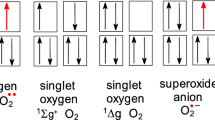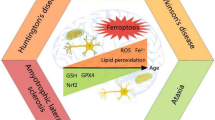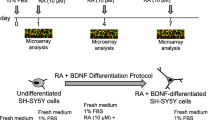Abstract
In the central nervous system (CNS), senescent astrocytes have been associated with neurodegeneration. Senescent cells secrete a complex mixture of pro-inflammatory factors, which are collectively called Senescence Associated Secretory Phenotype (SASP). The SASP components can vary depending on the cell type, senescence inducer and time. The SASP has been mainly studied in fibroblasts and epithelial cells, but little is known in the context of the CNS. Here, the SASP profile in senescent astrocytes isolated from Wistar newborn rats induced to senescence by oxidative stress or by proteasome inhibition was analyzed. Senescent astrocytes secreted predominantly chemokines and IL-1α, but no IL-6. The effect of the anti-inflammatory drugs, sulforaphane (SFN) and dehydroepiandrosterone (DHEA), on the SASP profile was evaluated. Our results showed that SFN and DHEA decreased IL-1α secretion while increasing IL-10, thus modifying the SASP to a less anti-inflammatory profile. Primary neurons were subjected to the conditioned media obtained from drug-treated senescent astrocytes, and their mitochondrial membrane potential was evaluated.





Similar content being viewed by others
References
Acosta JC et al (2013) A complex secretory program orchestrated by the inflammasome controls paracrine senescence. Nat Cell Biol 15:978–990. https://doi.org/10.1038/ncb2784
Amann R, Peskar BA (2002) Anti-inflammatory effects of aspirin and sodium salicylate. Eur J Pharmacol 447:1–9
Angiolillo AL et al (1995) Human interferon-inducible protein 10 is a potent inhibitor of angiogenesis in vivo. J Exp Med 182:155–162
Bhat R et al (2012) Astrocyte senescence as a component of Alzheimer’s disease. PLoS ONE 7:e45069. https://doi.org/10.1371/journal.pone.0045069
Bitto A, Sell C, Crowe E, Lorenzini A, Malaguti M, Hrelia S, Torres C (2010) Stress-induced senescence in human and rodent astrocytes. Exp Cell Res 316:2961–2968. https://doi.org/10.1016/j.yexcr.2010.06.021
Brewer GJ, Torricelli JR, Evege EK, Price PJ (1993) Optimized survival of hippocampal neurons in B27-supplemented Neurobasal, a new serum-free medium combination. J Neurosci Res 35:567–576. https://doi.org/10.1002/jnr.490350513
Chinta SJ, Lieu CA, Demaria M, Laberge RM, Campisi J, Andersen JK (2013) Environmental stress, ageing and glial cell senescence: a novel mechanistic link to Parkinson’s disease? J Intern Med 273:429–436. https://doi.org/10.1111/joim.12029
Chinta SJ, Woods G, Rane A, Demaria M, Campisi J, Andersen JK (2015) Cellular senescence and the aging brain. Exp Gerontol 68:3–7. https://doi.org/10.1016/j.exger.2014.09.018
Chinta SJ et al (2018) Cellular senescence is induced by the environmental neurotoxin paraquat and contributes to neuropathology linked to Parkinson’s disease. Cell Rep 22:930–940. https://doi.org/10.1016/j.celrep.2017.12.092
Cohen J, D’Agostino L, Wilson J, Tuzer F, Torres C (2017) Astrocyte senescence and metabolic changes in response to HIV antiretroviral therapy drugs. Front Aging Neurosci 9:281. https://doi.org/10.3389/fnagi.2017.00281
Collado M, Serrano M (2010) Senescence in tumours: evidence from mice and humans. Nat Rev Cancer 10:51–57. https://doi.org/10.1038/nrc2772
Coppe JP et al (2008) Senescence-associated secretory phenotypes reveal cell-nonautonomous functions of oncogenic RAS and the p53 tumor suppressor. PLoS Biol 6:2853–2868. https://doi.org/10.1371/journal.pbio.0060301
Coppe JP et al (2010) A human-like senescence-associated secretory phenotype is conserved in mouse cells dependent on physiological oxygen. PLoS ONE 5:e9188. https://doi.org/10.1371/journal.pone.0009188
Coppe JP, Rodier F, Patil CK, Freund A, Desprez PY, Campisi J (2011) Tumor suppressor and aging biomarker p16(INK4a) induces cellular senescence without the associated inflammatory secretory phenotype. J Biol Chem 286:36396–36403. https://doi.org/10.1074/jbc.M111.257071
Courtois-Cox S, Jones SL, Cichowski K (2008) Many roads lead to oncogene-induced senescence. Oncogene 27:2801–2809. https://doi.org/10.1038/sj.onc.1210950
de Keizer PL (2017) The fountain of youth by targeting senescent cells? Trends Mol Med 23:6–17. https://doi.org/10.1016/j.molmed.2016.11.006
de Magalhaes JP, Passos JF (2018) Stress, cell senescence and organismal ageing. Mech Ageing Dev 170:2–9. https://doi.org/10.1016/j.mad.2017.07.001
Demaria M et al (2014) An essential role for senescent cells in optimal wound healing through secretion of PDGF-AA. Dev Cell 31:722–733. https://doi.org/10.1016/j.devcel.2014.11.012
Deshmane SL, Kremlev S, Amini S, Sawaya BE (2009) Monocyte chemoattractant protein-1 (MCP-1): an overview. J Interferon Cytokine Res 29:313–326. https://doi.org/10.1089/jir.2008.0027
Dimri GP et al (1995) A biomarker that identifies senescent human cells in culture and in aging skin in vivo. Proc Natl Acad Sci USA 92:9363–9367
Dong Z, Shang H, Chen YQ, Pan LL, Bhatia M, Sun J (2016) Sulforaphane protects pancreatic acinar cell injury by modulating Nrf2-mediated oxidative stress and NLRP3 inflammatory pathway. Oxid Med Cell Longev 2016:7864150. https://doi.org/10.1155/2016/7864150
Dufour JH, Dziejman M, Liu MT, Leung JH, Lane TE, Luster AD (2002) IFN-gamma-inducible protein 10 (IP-10; CXCL10)-deficient mice reveal a role for IP-10 in effector T cell generation and trafficking. J Immunol 168:3195–3204
El Kihel L (2012) Oxidative metabolism of dehydroepiandrosterone (DHEA) and biologically active oxygenated metabolites of DHEA and epiandrosterone (EpiA)—recent reports. Steroids 77:10–26. https://doi.org/10.1016/j.steroids.2011.09.008
Freund A, Orjalo AV, Desprez PY, Campisi J (2010) Inflammatory networks during cellular senescence: causes and consequences. Trends Mol Med 16:238–246. https://doi.org/10.1016/j.molmed.2010.03.003
Gadani SP, Walsh JT, Lukens JR, Kipnis J (2015) Dealing with danger in the CNS: the response of the immune system to injury. Neuron 87:47–62. https://doi.org/10.1016/j.neuron.2015.05.019
Gaertner H et al (2008) Highly potent HIV inhibition: engineering a key anti-HIV structure from PSC-RANTES into MIP-1 beta/CCL4. Protein Eng Des Sel 21:65–72. https://doi.org/10.1093/protein/gzm079
Gonzalez-Meljem JM et al (2017) Stem cell senescence drives age-attenuated induction of pituitary tumours in mouse models of paediatric craniopharyngioma. Nat Commun 8:1819. https://doi.org/10.1038/s41467-017-01992-5
Greaney AJ, Maier NK, Leppla SH, Moayeri M (2016) Sulforaphane inhibits multiple inflammasomes through an Nrf2-independent mechanism. J Leukoc Biol 99:189–199. https://doi.org/10.1189/jlb.3A0415-155RR
Hubackova S, Krejcikova K, Bartek J, Hodny Z (2012) IL1- and TGFbeta-Nox4 signaling, oxidative stress and DNA damage response are shared features of replicative, oncogene-induced, and drug-induced paracrine ‘bystander senescence’. Aging (Albany NY) 4:932–951. https://doi.org/10.18632/aging.100520
Jeon OH et al (2017) Local clearance of senescent cells attenuates the development of post-traumatic osteoarthritis and creates a pro-regenerative environment. Nat Med 23:775–781. https://doi.org/10.1038/nm.4324
Krtolica A, Parrinello S, Lockett S, Desprez PY, Campisi J (2001) Senescent fibroblasts promote epithelial cell growth and tumorigenesis: a link between cancer and aging. Proc Natl Acad Sci USA 98:12072–12077. https://doi.org/10.1073/pnas.211053698
Laberge RM et al (2012) Glucocorticoids suppress selected components of the senescence-associated secretory phenotype. Aging Cell 11:569–578. https://doi.org/10.1111/j.1474-9726.2012.00818.x
Laberge RM et al (2015) MTOR regulates the pro-tumorigenic senescence-associated secretory phenotype by promoting IL1A translation. Nat Cell Biol 17:1049–1061. https://doi.org/10.1038/ncb3195
Li C et al (2017) Programmed cell senescence in skeleton during late puberty. Nat Commun 8:1312. https://doi.org/10.1038/s41467-017-01509-0
Lichte P et al (2014) Dehydroepiandrosterone modulates the inflammatory response in a bilateral femoral shaft fracture model. Eur J Med Res 19:27. https://doi.org/10.1186/2047-783X-19-27
Liou CJ, Huang WC (2011) Dehydroepiandrosterone suppresses eosinophil infiltration and airway hyperresponsiveness via modulation of chemokines and Th2 cytokines in ovalbumin-sensitized mice. J Clin Immunol 31:656–665. https://doi.org/10.1007/s10875-011-9529-3
Lopez-Otin C, Blasco MA, Partridge L, Serrano M, Kroemer G (2013) The hallmarks of aging. Cell 153:1194–1217. https://doi.org/10.1016/j.cell.2013.05.039
Maciel-Baron LA et al (2016) Senescence associated secretory phenotype profile from primary lung mice fibroblasts depends on the senescence induction stimuli. Age (Dordr) 38:26. https://doi.org/10.1007/s11357-016-9886-1
Maciel-Baron LA et al (2017) Cellular senescence, neurological function, and redox state. Antioxid Redox Signal. https://doi.org/10.1089/ars.2017.7112
Malaquin N, Martinez A, Rodier F (2016) Keeping the senescence secretome under control: molecular reins on the senescence-associated secretory phenotype. Exp Gerontol 82:39–49. https://doi.org/10.1016/j.exger.2016.05.010
McCarthy KD, de Vellis J (1980) Preparation of separate astroglial and oligodendroglial cell cultures from rat cerebral tissue. J Cell Biol 85:890–902
McCarthy DA, Clark RR, Bartling TR, Trebak M, Melendez JA (2013) Redox control of the senescence regulator interleukin-1alpha and the secretory phenotype. J Biol Chem 288:32149–32159. https://doi.org/10.1074/jbc.M113.493841
Moiseeva O et al (2013) Metformin inhibits the senescence-associated secretory phenotype by interfering with IKK/NF-kappaB activation. Aging Cell 12:489–498. https://doi.org/10.1111/acel.12075
Munoz-Espin D et al (2013) Programmed cell senescence during mammalian embryonic development. Cell 155:1104–1118. https://doi.org/10.1016/j.cell.2013.10.019
Negrette-Guzman M, Huerta-Yepez S, Tapia E, Pedraza-Chaverri J (2013) Modulation of mitochondrial functions by the indirect antioxidant sulforaphane: a seemingly contradictory dual role and an integrative hypothesis. Free Radic Biol Med 65:1078–1089. https://doi.org/10.1016/j.freeradbiomed.2013.08.182
Omari KM, John G, Lango R, Raine CS (2006) Role for CXCR2 and CXCL1 on glia in multiple sclerosis. Glia 53:24–31. https://doi.org/10.1002/glia.20246
Orjalo AV, Bhaumik D, Gengler BK, Scott GK, Campisi J (2009) Cell surface-bound IL-1alpha is an upstream regulator of the senescence-associated IL-6/IL-8 cytokine network. Proc Natl Acad Sci USA 106:17031–17036. https://doi.org/10.1073/pnas.0905299106
Pitzer C et al (2008) Granulocyte-colony stimulating factor improves outcome in a mouse model of amyotrophic lateral sclerosis. Brain 131:3335–3347. https://doi.org/10.1093/brain/awn243
Pratschke S et al (2014) Dehydroepiandrosterone modulates T-cell response after major abdominal surgery. J Surg Res 189:117–125. https://doi.org/10.1016/j.jss.2014.02.002
Purcell M, Kruger A, Tainsky MA (2014) Gene expression profiling of replicative and induced senescence. Cell Cycle 13:3927–3937. https://doi.org/10.4161/15384101.2014.973327
Rodier F, Campisi J (2011) Four faces of cellular senescence. J Cell Biol 192:547–556. https://doi.org/10.1083/jcb.201009094
Rutkowski K, Sowa P, Rutkowska-Talipska J, Kuryliszyn-Moskal A, Rutkowski R (2014) Dehydroepiandrosterone (DHEA): hypes and hopes. Drugs 74:1195–1207. https://doi.org/10.1007/s40265-014-0259-8
Schneider A et al (2005) The hematopoietic factor G-CSF is a neuronal ligand that counteracts programmed cell death and drives neurogenesis. J Clin Invest 115:2083–2098. https://doi.org/10.1172/JCI23559
Storer M et al (2013) Senescence is a developmental mechanism that contributes to embryonic growth and patterning. Cell 155:1119–1130. https://doi.org/10.1016/j.cell.2013.10.041
Tchkonia T, Zhu Y, van Deursen J, Campisi J, Kirkland JL (2013) Cellular senescence and the senescent secretory phenotype: therapeutic opportunities. J Clin Invest 123:966–972. https://doi.org/10.1172/JCI64098
Torres C, Lewis L, Cristofalo VJ (2006) Proteasome inhibitors shorten replicative life span and induce a senescent-like phenotype of human fibroblasts. J Cell Physiol 207:845–853. https://doi.org/10.1002/jcp.20630
Toussaint O et al (2002) Stress-induced premature senescence: from biomarkers to likeliness of in vivo occurrence. Biogerontology 3:13–17
Triana-Martinez F et al (2014) Cell proliferation arrest and redox state status as part of different stages during senescence establishment in mouse fibroblasts. Biogerontology 15:165–176. https://doi.org/10.1007/s10522-013-9488-6
Triana-Martinez F, Pedraza-Vazquez G, Maciel-Baron LA, Konigsberg M (2016) Reflections on the role of senescence during development and aging. Arch Biochem Biophys 598:40–49. https://doi.org/10.1016/j.abb.2016.04.004
Turnquist C et al (2016) p53 isoforms regulate astrocyte-mediated neuroprotection and neurodegeneration. Cell Death Differ 23:1515–1528. https://doi.org/10.1038/cdd.2016.37
Wang R et al (2017) Rapamycin inhibits the secretory phenotype of senescent cells by a Nrf2-independent mechanism. Aging Cell 16:564–574. https://doi.org/10.1111/acel.12587
Wiley CD et al (2016) Mitochondrial dysfunction induces senescence with a distinct secretory phenotype. Cell Metab 23:303–314. https://doi.org/10.1016/j.cmet.2015.11.011
Wu Z, Yu Y, Liu C, Xiong Y, Montani JP, Yang Z, Ming XF (2015) Role of p38 mitogen-activated protein kinase in vascular endothelial aging: interaction with Arginase-II and S6K1 signaling pathway. Aging (Albany NY) 7:70–81. https://doi.org/10.18632/aging.100722
Xiang J, George SL, Wunschmann S, Chang Q, Klinzman D, Stapleton JT (2004) Inhibition of HIV-1 replication by GB virus C infection through increases in RANTES, MIP-1alpha, MIP-1beta, and SDF-1. Lancet 363:2040–2046. https://doi.org/10.1016/S0140-6736(04)16453-2
Yu C, Narasipura SD, Richards MH, Hu XT, Yamamoto B, Al-Harthi L (2017) HIV and drug abuse mediate astrocyte senescence in a beta-catenin-dependent manner leading to neuronal toxicity. Aging Cell 16:956–965. https://doi.org/10.1111/acel.12593
Acknowledgements
The authors would like to thank Dr. Rocío González-Vieira from UAM-I for animal supply and Dr. Ruth Rincón Heredia from IFC-UNAM and the CBS-UAMI Confocal Core for confocal images acquisition and analysis. Dr. Anahí Chavarría for her guidance in the cytokines field. This work was supported by CONACyT grant FON.INST/298/2016, as well as the “Red Temática de Investigación en Salud y Desarrollo Social” from CONACYT. Maciel-Barón, Silva-Palacios and Morales-Rosales are CONACyT scholarship holders.
Author information
Authors and Affiliations
Corresponding author
Ethics declarations
Conflict of interest
The authors have no conflicts of interest to disclose.
Electronic supplementary material
Below is the link to the electronic supplementary material.
Rights and permissions
About this article
Cite this article
Maciel-Barón, L.Á., Morales-Rosales, S.L., Silva-Palacios, A. et al. The secretory phenotype of senescent astrocytes isolated from Wistar newborn rats changes with anti-inflammatory drugs, but does not have a short-term effect on neuronal mitochondrial potential. Biogerontology 19, 415–433 (2018). https://doi.org/10.1007/s10522-018-9767-3
Received:
Accepted:
Published:
Issue Date:
DOI: https://doi.org/10.1007/s10522-018-9767-3




